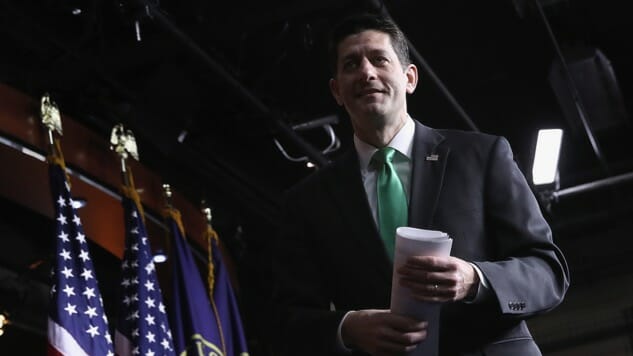Democrats, Your 2018 Recipe is Universal Health Care
Photo by Win McNamee
As House Speaker Paul Ryan and the GOP flounder in their attempts to sell their repeal and replace plan on the Affordable Care Act (ACA), there’s a real opportunity for Democrats to make inroads into retaking the House in 2018. This is an unheard of advantage, given that the first months to a year of a new President’s term are usually time for the executive and his party to consolidate power and pursue their agenda.
But, of course, Donald Trump is no normal President, the 2016 election was no normal election, and the GOP is not a normal party. So now, in week eight of the Trump administration, the signature policy proposal of the new regime is not only dying on the vine in Congress but also eroding whatever political capital they had.
The Democrats should take this opportunity to push for a popular, populist policy and reap the electoral benefits. That policy exists—it’s called universal health care.
With the governing party in disarray because of their attacks on an entitlement program, the Democrats have a unique moment in which to make some gains. It starts with acknowledging the fact that the health care entitlement program they passed in 2010 is at best an imperfect place holder for single-payer.
One of the interesting points of recent polling is that while Americans are supportive of the ACA, the bill’s slangy “Obamacare” name brings the approval numbers down. But the reasons for this disconnect are quite clear. Beyond the GOP’s message machine, which effectively painted the program as a lurching disaster of misfiring big government, the bill has had serious problems. Signing up for insurance is difficult. The ACA website is famously awful and the deadlines are not well publicized to the public. Further, premiums have gone up as options have gone down—a perfect example of the inefficiency of private companies doing the work of the state. All of these problems are understood under the umbrella of “Obamacare.”
-

-

-

-

-

-

-

-

-

-

-

-

-

-

-

-

-

-

-

-

-

-

-

-

-

-

-

-

-

-

-

-

-

-

-

-

-

-

-

-








































